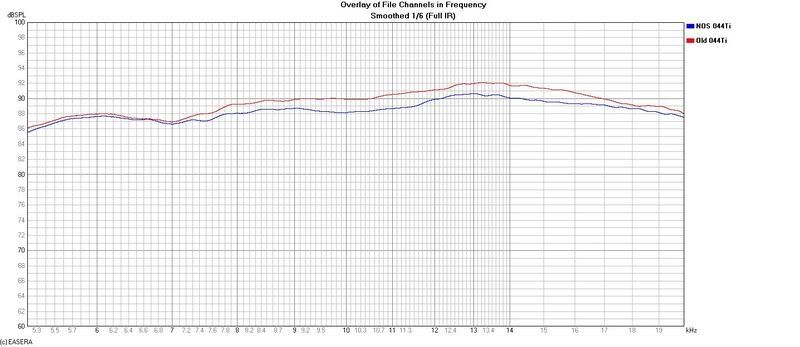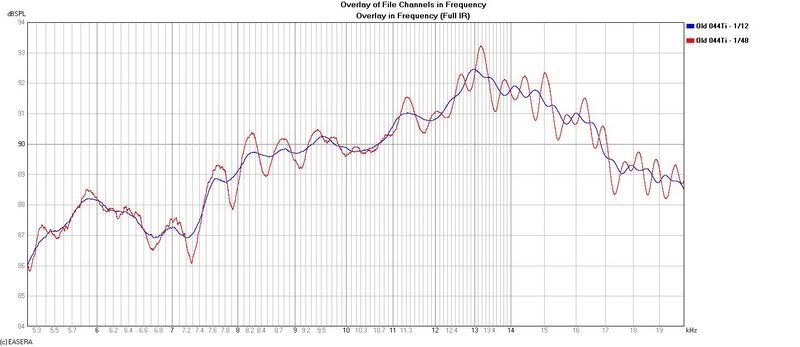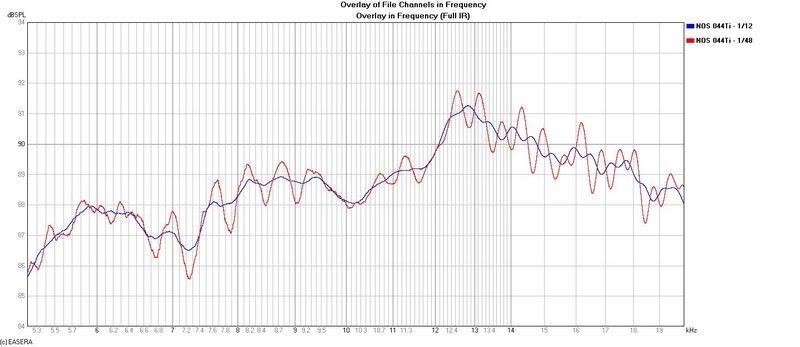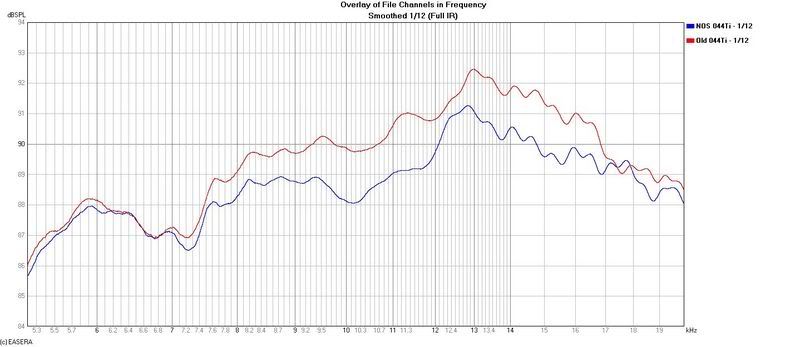Guys,
I finally got around to measuring frequency response plots of the one NOS 044Ti and the other "old" 044Ti I still have installed in my 250Ti's.
Two graphs here, one is 1/6 Octave "smoothed" response, the other is "unsmoothed". Graphs are over the 5.2KHz to 20KHz range only. The Blue trace is the NOS unit.
Measurements were done using EASERA and Bruel & Kjaer mic so measurement chain is good. All measurements are done inside (would have preferred external "free-field") with mic on-axis 100mm from centre of 044Ti dome.
This sort of measurements isn't really my thing (more into the room acoustics side) so am open to suggestions from others more experienced on the measurements method.





 Reply With Quote
Reply With Quote ) that the dampening foaml is no longer dampening so the old diaphram is "ringing"...
) that the dampening foaml is no longer dampening so the old diaphram is "ringing"...






 ]
]
